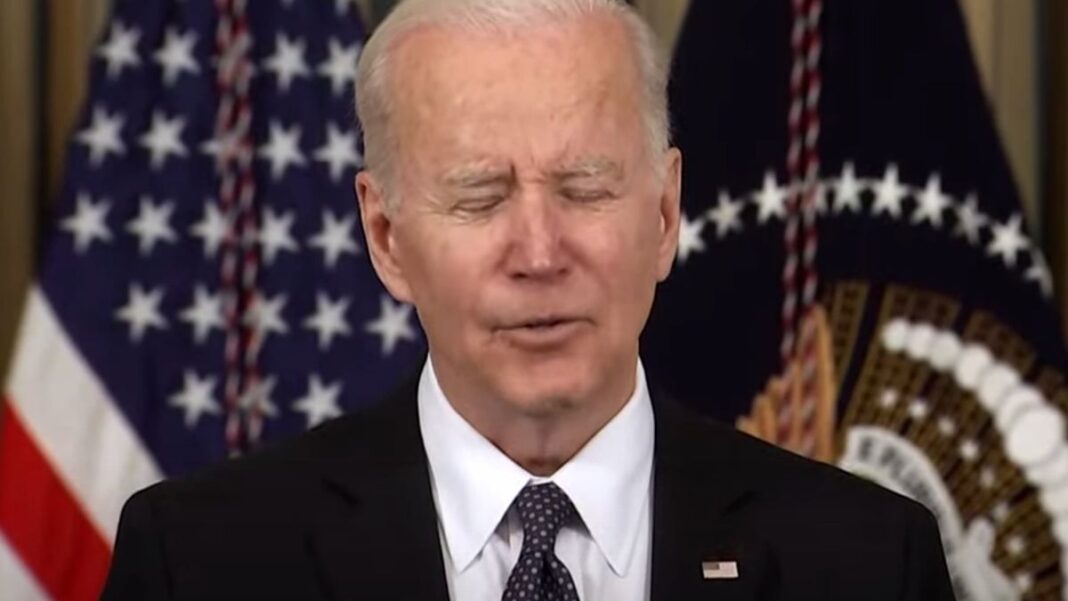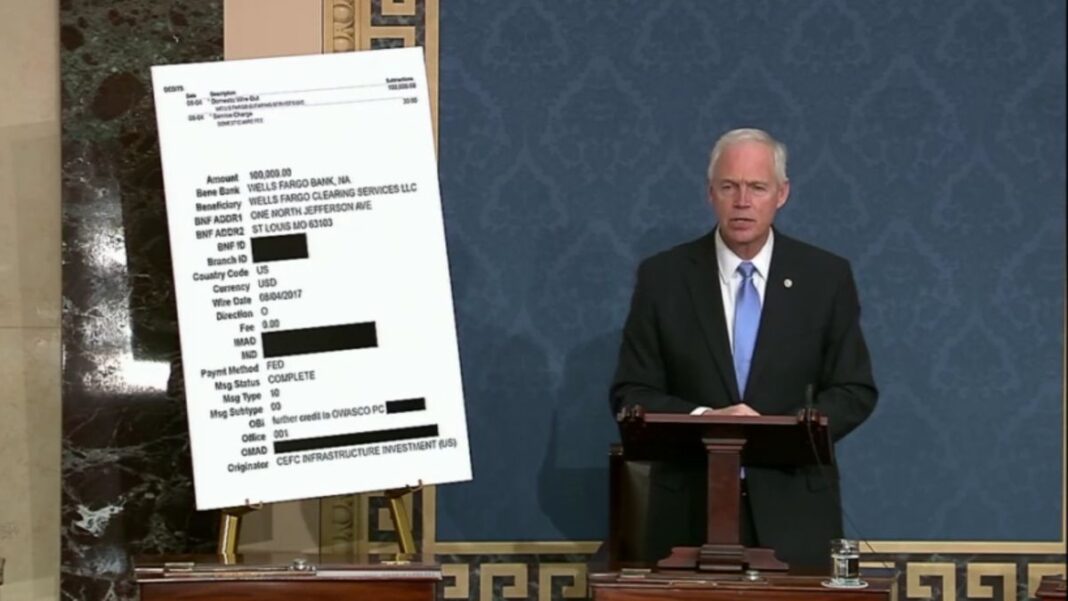On March 28, 2022, President Biden hosted the annual Budget Pageant. This release of a massive book of proposals and charts is rarely taken seriously by a Congress that operates under dysfunctional appropriations process. Many in Congress quip the budget is “Dead on Arrival.” Unfortunately, those quipsters ignore their primary constitutional responsibilities to raise revenue, pay debts, and provide for the general welfare, whatever that might mean to any given Congress. Instead, Congress usually authorizes the president to print as much money as can be printed with the paper and ink available.
The Budget Pageant continues for a simple reason – the president and Congress need to divert the public’s attention to stupid proposals since both are unwilling to manage government operations with the revenue raised.
For the FY 2023 budget, Biden is proposing to spend $5.9 trillion, which is 30% more than the last pre-Covid budget in 2019. Moreover, Biden fails to mention that taxpayer money is flowing into the treasury at its highest level ever. The Congressional Budget Office estimates a record tax collection of over $ 4 trillion. Why is it so hard for the federal government to live within a $ 4 trillion budget?
Biden’s budget claims it needs more taxes, but it will reduce the national debt by $1trillion over the next ten years, about $100 billion a year. Inflation, however, is running over 8 %, and the interest on the national debt of $27 trillion is $ 305 billion annually at a $1.4% interest rate. A 1% increase in interest rates will require an additional interest payment of $300 billion. A 2% increase in the interest rates will require an additional $600 billion payment. Biden needs a remedial math class. Then Biden proposes to tax billionaires on unsold assets. The only positive aspect of this proposal is it will create significant work for already wealthy lawyers and accountants.
Since the president’s budget proposals are irrelevant, and Congress is the only entity authorized by the Constitution to raise and spend money, it’s time for Congress to act responsibly. Sadly, Congress makes reducing the national debt far too complicated. Members constantly fight to save thousands of federal programs that are only important to lobbyists but irrelevant to most of the American people. Congress should limit its spending to items benefitting the nation.
By refocusing the discussion on the national interest, it is easy to find programs to cut by looking at programs Congress ignores but continues to fund for lack of interest in conducting oversight. If Republicans retake control of Congress and they are serious about reducing the national debt, they can do it without disturbing the economy.
The Seven Doable Debt Reductions Tactics Republicans Can Apply in 2023
1. Zero Based Budgeting. Zero-based budgeting is defined as the “[A] method of budgeting in which all expenses must be justified for each new period. The process of zero-based budgeting starts from a ‘zero base,’ and every function within an organization is analyzed for its needs and costs.” Using this method will force Congress to review the value of the many thousand federal programs that continue without any oversight. The perfect example is Congress funding programs that it fails to reauthorize.
2. Congress should not fund unauthorized laws. The most manageable budget cuts would be to refrain from funding laws Congress has not authorized. “In FY 2021 appropriations, the Congressional Budget Office identified 1,068 authorizations of appropriations, stemming from 274 laws, totaling $432 billion, that expired before 2022.” If Congress is unwilling to reauthorize expired laws, Congress should let them expire. Since House Rules prohibit the funding of laws not authorized by Congress, letting those unauthorized laws expire is an easy savings of almost one-half trillion dollars.
3. Review and vote on every expenditure in the Judgment Fund. The Judgment Fund is the mother of all slush funds. It is a permanent, indefinite, and unlimited congressional appropriation continuously available to pay money judgments entered against the United States and settlements of cases in or likely to be in litigation with the United States. It is so secret that Congress no longer even debates any specific payments. The Department of the Treasury pays the claims upon receiving completed forms. President Obama used the Judgment Fund to deliver $1.7 billion in cash to Iran as a bribe to sign the nuclear agreement. Before 1956 Congress was required to approve each payment from the Judgment Fund. To relieve itself of responsibility, Congress changed the law so it did not have to approve each payment. By reinstating the pre-1956 rules, Congress could save taxpayers tens of billions of dollars by rejecting improper payments.
4. Enact a fair, simple tax code that focuses on raising money, not legislating behavior. The Income Tax Code is ridden with exemptions, deductions, credits, and deferrals so the very wealthy can avoid taxes and the poorest are exempt from taxes. Congress can reverse this complexity by eliminating the 8-million-word tax code and replacing it with the 1913- four-page Form 1040, which includes instructions. The benefit of this simple approach is it captures a more significant amount of tax owed by closing the “tax gap.” The IRS defines the tax gap as the difference between actual taxes owed for a given tax year and the amount paid. The gap results from the under-reporting of income, non-filing, and tax evasion. While the exact amount is unknown, the IRS estimates it to range from $574 to $700 billion annually. A complex tax code invites under-reporting and manipulation, which is exactly the current tax code.
5. GAO’s Generally Accepted Accounting Principles (“GAAP”). Congress mandates GAO to perform a GAAP analysis of federal spending and assets and provide recommendations to ensure the financial reporting by the agency is transparent and consistent. Every member of Congress should read these reports and implement the findings on mismanagement. One specific GAO recommendation is for the federal government to address the government-wide improper payments, estimated to be $175 billion. Saving money by not paying the wrong parties seems like a doable procedure. The amount of information available to Congress for making smart debt reduction decisions is overwhelming. It is time Congress implements the advice given it.
6. Make Federal spending a kitchen table issue. Congress should make a kitchen-table list of the most important national programs. A simple way to approach this task would be for each congressional committee to rank each program within its jurisdiction. The appropriation committees would work down the priorities list until the revenues raised by taxes are expended. At that point, Congress would have to cease spending money on non-priority programs, e.g., studies of shrimp on a treadmill, or admit to the taxpayers; it wants to borrow money to fund programs of little value. This kitchen-table process of spending only up to revenues received could save another $1plus-trillion annually, even if Congress expended a few hundred billion on some lower value programs.
7. Eliminate congressional gifts to the largest corporations. Congress gives tens of billions of dollars annually to the largest corporations through grants, tax credits, and loan guarantees. These are pure gifts to Boeing, General Motors, Ford, GE, Chase, and hundreds more. There are simply no reasons Congress needs to subsidize the largest and most profitable global corporations. According to the Good Jobs First report, Boeing, having a market value of $112 billion, received $71 billion in loan guarantees and bailout assistance since 2012. With a market value of $ 68 billion, General Motors received almost $1.1 billion in federal grants or tax credits and over $50 billion in loan guarantees and bailout assistance. Even a smaller, publicly unknown company, like X-Energy, LLC, received a $ 5.3 billion federal grant. Congress provides thirty-four types of tax credits for companies involved with research, renewable fuels, improving energy efficiency, maintaining railroad tracks, making distilled spirits or electric cars, etc. The tax credits allow a company to directly deduct the amount of the credit from its tax bill. These are just gifts to corporations.
Implementing some combination of these seven proposals would reduce the national debt by over $1 trillion a year without disturbing programs Congress views as a “must fund.” If Republicans are serious about reducing the national debt, now is the time to be responsible and just do it.






